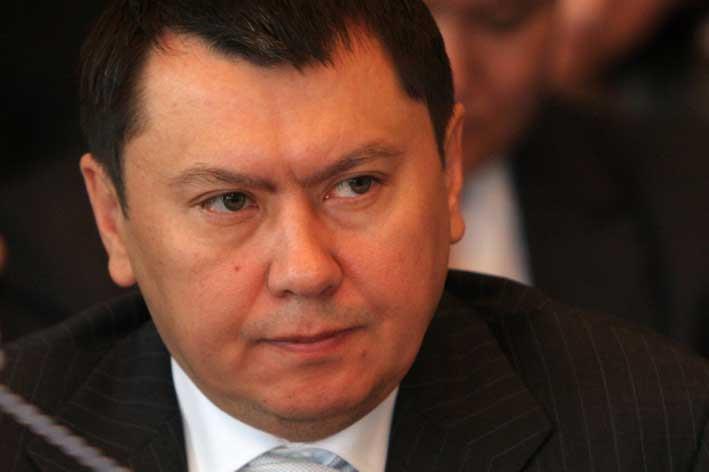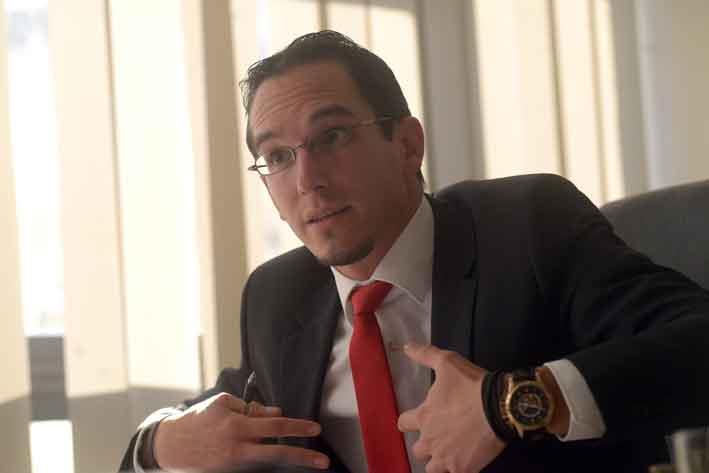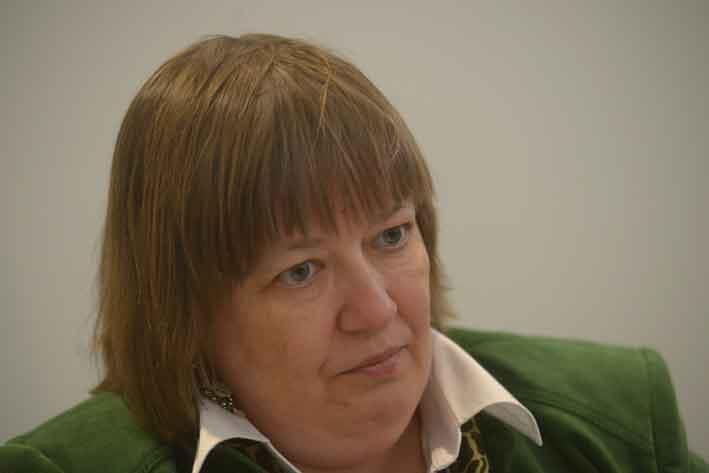Irina Petrushova, founder and editor of the weekly Kazakhstani newspaper Respublika received a funeral wreath and found a beheaded dog hung on her window, with a note saying ‘you’re next’. Shortly after the premises of the newspaper she founded were burned downed, and the financial police tried to kidnap her son from school. But that doesn’t stop her from seeking the truth. She is now convinced that former diplomat Rakhat Alijev’s death was no suicide. In an interview with Therese Bonnici she explains why.
“I’m a journalist – that is enough reason to keep me going,” she tells The Malta Independent. “If you are seeking the truth, which should be public information, then you can never go too far. A journalist should not resort to conspiracy theories, but should strive to make the truth known.”
But making the truth public in a country such as Kazakhstan is not as clear-cut. “This is not about limited freedom expression; this is about not having any freedom of mass media at all in the country.” She explains that while writing an article, journalists in Kazakhstan evaluate the content; to ensure that nothing ‘extra’ is added. But what does she mean by extra? “Extra content includes criticism of the government, government officials or powerful businessmen. If the journalist allows himself to write about such topics, then he can face a number of situations. In the best case scenario, he loses his job. In the worst case scenario – he loses his life. In between, he may be beaten up, or his family may be targeted,” she says.
“If you choose to be a journalist, then you should only be after the truth. However, one needs to realise the risks of the profession. It is with great disappointment that I say that in Kazakhstan, journalists have become servants of the ruling authority. This is also the case in Russia, as well as many other countries.”
But despite being deeply aware of the consequences, Mrs Petrushova never faced a dilemma on what to publish or not. The purpose of launching Respublika was to reveal the entire truth, and going against that will defeat the whole point. She does admit that she was intimidated to disclose her sources several times, even, she says, in Malta’s law courts. But a journalist never reveals his sources.
“I do not deny that there were times when I was scared, particularly when they attempted to kidnap my son. Children are the best weapon to suppress the parents. I am still living in danger, particularly following Alijev’s death.”

Alijev’s death was no suicide – too many questions are unanswered
Rakhat Alijev was charged for kidnapping and killing two bank managers back in 2011. In 2008, he was sentenced to 40 years in jail for attempting to overthrow the government. After hiding in Malta to avoid an Interpol warrant for his arrest, he was taken into custody in Austria in 2014. Three weeks ago, the former Kazakh diplomat was found hanged in his cell in Vienna.
Mrs Petrushova is however convinced that the death was no suicide. In Vienna two weeks ago, the editor in chief had the opportunity to look into Alijev’s death police file, only to notice that the content, or rather lack of it, raises a lot of questions. The editor in chief explained that Mr Alijev was prescribed sleeping pills by his doctor, however, even though it is usually nurses who hand out medication to the inmates, CCTV footage shows the floor’s chief guard handing it to Mr Alijev, with the nurse close by, with her back towards them. When blood tests were conducted, forensics found a different medicine different than that prescribed, containing barbiturates, a sedative which is forbidden for use in Austria.
Besides this, Mrs Petrushova questions where the bandages Alijev was hanged with came from, given they were not easy to get hold of in a prison. No DNA samples were taken from the bandages, or anywhere else in the cell, or at least, they were not reported in the police file, Mrs Petrushova says. “The testimonies of the nurse and the chief guard were not in the police file either – this can mean two things – that they were not interrogated, or their testimonies have been left concealed,” she says.
In addition, captured shots of the CCTV footage showed the Alijev’s body falling to the floor when the guard cut the bandages he was hung upon and the police file does not contain photos of the initial discovery of the body. Also, turns out doctors were not called on scene to pronounce his death.
“I did anticipate the possibility of someone killing him yes. But I didn’t think something of the sort will take place in prison, “Mrs Petrushova admits.

Alijev’s lawyers are also convinced that his death was no suicide. The legal team argued that the doctor who carried out an autopsy had a conflict of interest as he was listed as a witness for the prosecution in Dr Aliyev’s murder trial. At a press conference, the lawyers pointed out that his body showed no signs of struggle, even though the natural reaction of a person who is choking would be to try and remove the choke-hold. Initial investigations suggested that his death was a painful affair, and they questioned why their client did not choose a less painful suicide method.
Mr Alijev’s widow also insisted that it was out of question that her husband ended his own life, saying that he was looking forward to the trial, seeing it as an opportunity to uncover the ‘witch-hunt’ he was being subjected to.
Asked whether this could be an inside job, Mrs Petrushova says that it is a possibility, but she does not want to commit herself to this theory just yet. “I have spoken to one of the inmates who explained that prison guards are very corrupt. He told me that prison guards have offered him drugs, and even a prostitute.”
Years back, the same Alijev tried to bring down Respublika, however Mrs Petrushova claims there is no point in recollecting such memories, given she is ultimately merely seeking the truth.
Based on information she has, Mrs Petrshova is convinced that Alijev had nothing to do with the bankers’ murder, the charges for which he was imprisoned. She explains that the accused had several content he was about to use during court proceedings – information that could have essentially freed him. The information, according to Alijev, prove that Nazarbajev, president of Kazakhstan was the mastermind behind the murder of the bank workers, but he managed to pin it down on the former diplomat. It was Alijev himself who initiated the court trial, which will now, will never take place.

Mrs Petrushova was looking forward to reporting court proceedings, however this of course never happened, as Alijev was found dead before it even started. She explains that important information is saved on the AG’s server office. The server is secured in such a way that if someone enters the wrong password, information is immediately deleted. On the week he was found dead, Alijev had visited the AG’s office requesting that information.
Back in 2004, a story published on Kazakhstan newspapers report how Anastasiya Novikova, mother of a child who is allegedly the son of Alijev, was found dead. Medical examiners said Anastasiya’s broken bones were consistent with a 9-story fall, but forensic evidence did not prove she was murdered. Some reports claimed that Alijev had severely beat Ms Novikova for cheating on him, as further punishment after taking away her baby. Witnesses say he whipped her, broke her ribs and raped her, before.
Ms Novikova was a news reader for one of Kazakhstan’s major television channels, NTK, of which Alijev is owner. The report states that Alijev promised to liberate her from obscurity, and the two started having an affair, with Ms Novikova shortly becoming pregnant with his child. Because he couldn’t make the affair public, Alijev forced Ms Novikova to marry his cousin, a subordinate in Kazakstan’s diplomatic service and pretend the baby was his, according to reports.
Mrs Petrushova is convinced that this story is made up. “In Kazakhstan they are more than capable of inventing such stories,” she says. “I will not go into the details, as I do not have enough knowledge to do so. But even if Ms Novikova was found dead, that doesn’t mean Alijev pushed her down.”
The editor-in-chief is now willing to get some answers to these unsolved questions. It won’t be easy, but as if that has ever stopped her. She does not however intend to return back to Kazakhstan. “I don’t want to be imprisoned,” she adds.